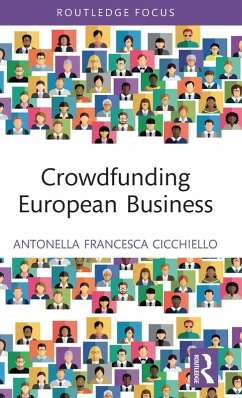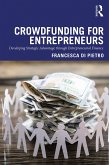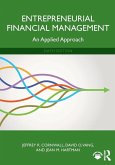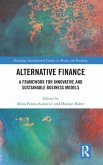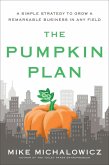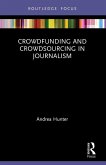This book questions the ability of crowdfunding (especially in the lending and equity-based models) to contribute to the development of European businesses, and therefore, to the relaunch of the European economy. Following a mainly micro (firm-based) approach, the study investigates the advantages of crowd investors' increased role both in making financial resources available to the industrial base, thus reinvigorating economic growth across the European Union.
The book reframes contemporary issues surrounding corporate finance and develops relevant knowledge to help companies succeed when it comes to securing the means to grow. It provides new and interesting insights into the alternative finance market, in light of the global financial crisis and the COVID-19 pandemic. The book describes the main alternative finance models which include not only lending and equity-based crowdfunding, but also marketplace lending, balance sheet lending, invoice trading, securities, real estate crowdfunding, and profit-sharing. It also analyses the due diligence process and other value-added services provided by platforms and backers. The book outlines a systematic understanding of crowdfunding as a substitute or complement to other forms of entrepreneurial finance and unpacks some of the misunderstandings surrounding the crowdfunding industry and its future evolution. The conclusions reached can be of help to entrepreneurs who have limited knowledge of the crowdfunding tool and the associated benefits.
As such, this book is a valuable resource for students, researchers, professionals, and practitioners interested in discovering or better understanding the crowdfunding process, its characteristics, and the range of players in this market.
The book reframes contemporary issues surrounding corporate finance and develops relevant knowledge to help companies succeed when it comes to securing the means to grow. It provides new and interesting insights into the alternative finance market, in light of the global financial crisis and the COVID-19 pandemic. The book describes the main alternative finance models which include not only lending and equity-based crowdfunding, but also marketplace lending, balance sheet lending, invoice trading, securities, real estate crowdfunding, and profit-sharing. It also analyses the due diligence process and other value-added services provided by platforms and backers. The book outlines a systematic understanding of crowdfunding as a substitute or complement to other forms of entrepreneurial finance and unpacks some of the misunderstandings surrounding the crowdfunding industry and its future evolution. The conclusions reached can be of help to entrepreneurs who have limited knowledge of the crowdfunding tool and the associated benefits.
As such, this book is a valuable resource for students, researchers, professionals, and practitioners interested in discovering or better understanding the crowdfunding process, its characteristics, and the range of players in this market.

